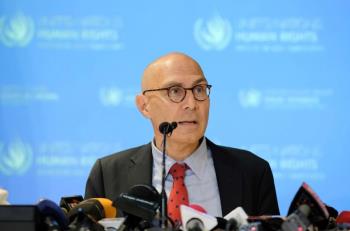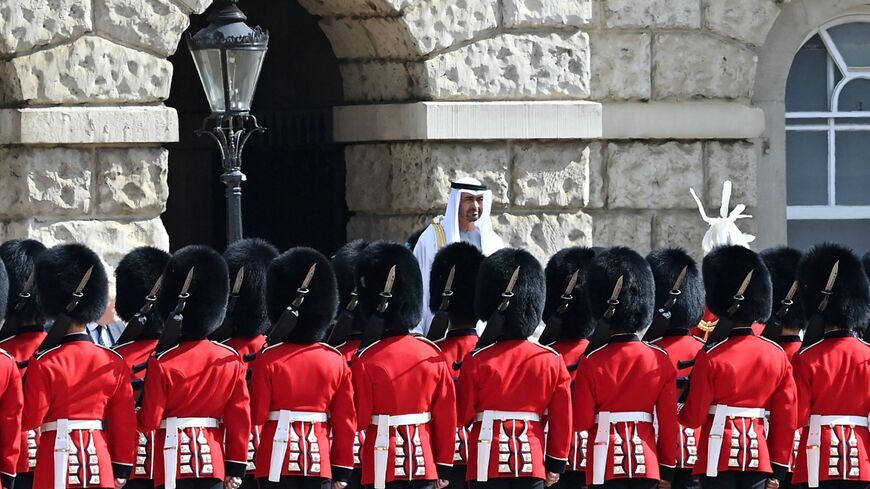Alwaght- As a continuation to multi-faceted foreign policy to strengthen the country's regional position, on Saturday Abu Dhabi Crown Prince Mohammed bin Zayed Al Nahyan hosted the Pakistani army chief Qamar Javed Bajwa. The trip to the Emirates came while Islamabad's relations with Abu Dhabi have experienced chill due to the Pakistan's reluctance to involve in Yemen war and decline by the (Persian) Gulf Cooperation Council to have Pakistan's back in the dispute with India over New Delhi's revocation of Kashmir autonomy. Also, the visit is taking place as recently Pakistan played a bigger role in Afghanistan and has been increasingly moving close to Turkey, a geopolitical and ideological rival to the UAE in more than a regional case.
The meeting promotes a question: What is bin Zayed seeking behind the Bajwa's invitation?
Bolstering bilateral ties
Boosting the bilateral relations is the first and perhaps most accessible goal of bin Zayed behind inviting the chief of the Pakistani army. In the military and security field, Pakistan has played a significant role in strengthening and evolving the UAE's various institutions, such as the armed forces, police and security forces, since the independence of the Arab monarchy in the 1970s. In recent years, Pakistani officers have also trained Emirati soldiers and pilots. Over the past decade, the UAE has even put investment in a Pakistani ammunition plant on its agenda and opened in 2016 "cadet college" in South Waziristan province of Pakistan. As the US withdrawal from the region is now inevitable, the crown prince seeks to shore up military cooperation with Islamabad as a regional military heavyweight.
Economically speaking, Pakistan is a major trade partner to the UAE with around $10 billion annual exchange volume. The UAE's economic investments in Pakistan have reached a significant amount of more than $20 billion. Now more than 26 Emirati companies in Pakistan are involved in new sectors of economic development and trade, and more than 28 agreements and MoUs have been inked, including eliminating double taxation and promoting and protecting mutual investment. Also, the presence of Pakistani expats and workers in the UAE is extremely important for Islamabad. There are currently over 1.5 million Pakistanis in the UAE as migrants. The remittances they send home from the UAE are extraordinarily vital for the Pakistani economy.
Getting Pakistan on board Emirati policy in regional issues
In recent years, bin Zayed has focused his foreign policy strategy on three important areas: Having active presence in regional equations and hot spots, increasing the UAE's weight in the Arab world as a political leader, and containing Muslim Brotherhood camp, represented by Turkey and Qatar, in West Asia and North Africa. To these ends, bin Zayed, in addition to Arab actors, has focused on Pakistan as one of the most important Islamic countries with nuclear power. Actually, bin Zayed is trying to harmonize Pakistan's positions with his own on various issues and, on the other hand, push Pakistan away from moving closer to Muslim Brotherhood, or to be precise, policies of the Turkish President Recep Tayyip Erdogan.
Still, it needs to be mentioned that the UAE foreign policy czar has no easy job due to regional conflicts, from Qatar crisis to Syrian and Yemen wars, and even Afghanistan, Islamabad's stances have been conflicting with those of Abu Dhabi. Another hampering factor for closer Abu Dhabi-Islamabad relations is growing proximity of the UAE and India, a staunch regional rival to Pakistan.
In foreign policy terms, in can be said that contrary to bin Zayed's demands for policy convergence, Pakistan maintains its policy and strategy independence no matter how urgent are its economic needs. The certain point is that the crown prince will fail in his push to bring Pakistan on board his policy.
Afghanistan crisis
Although in early September some Pakistani foreign ministry officials underestimated the role of the UAE in Afghanistan's field and political equations, the reality is that bin Zayed, as an ambitious leader with an approach seeking interventionism in crisis spots, intends to play at least a minimal role in Afghanistan. When Kabul fell to the Taliban, the Emirates played serious role in transferring the foreign nationals out of Kabul. It also sent considerable humanitarian aids to Afghanistan over the past month. All these measures prove that bin Zayed is interested in a role in Afghanistan equations, something providing him with an opportunity to establish the UAE as a regional power actor. Aware that currently Islamabad is the dominant foreign player in Afghanistan, the UAE seeks to enter Afghanistan future political and economic equations from Islamabad gate. So, the UAE's role in future power developments in Kabul looks somewhat likely with assistance from Pakistan.



























